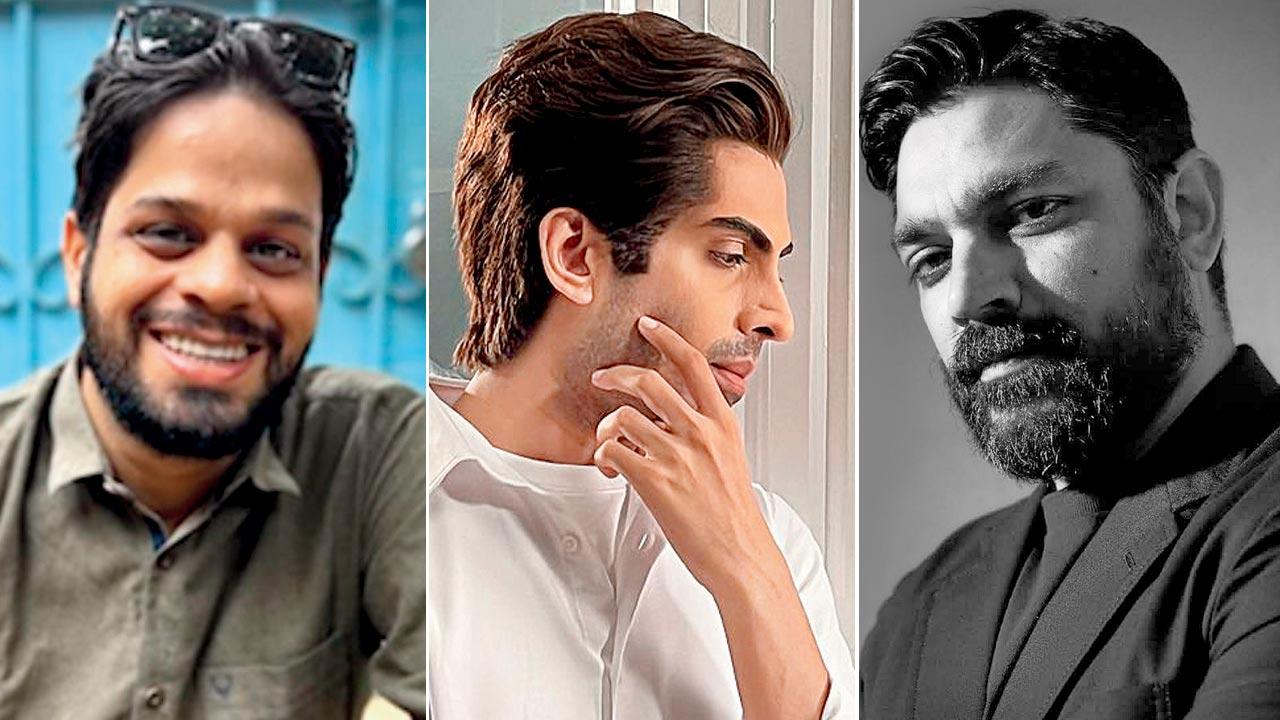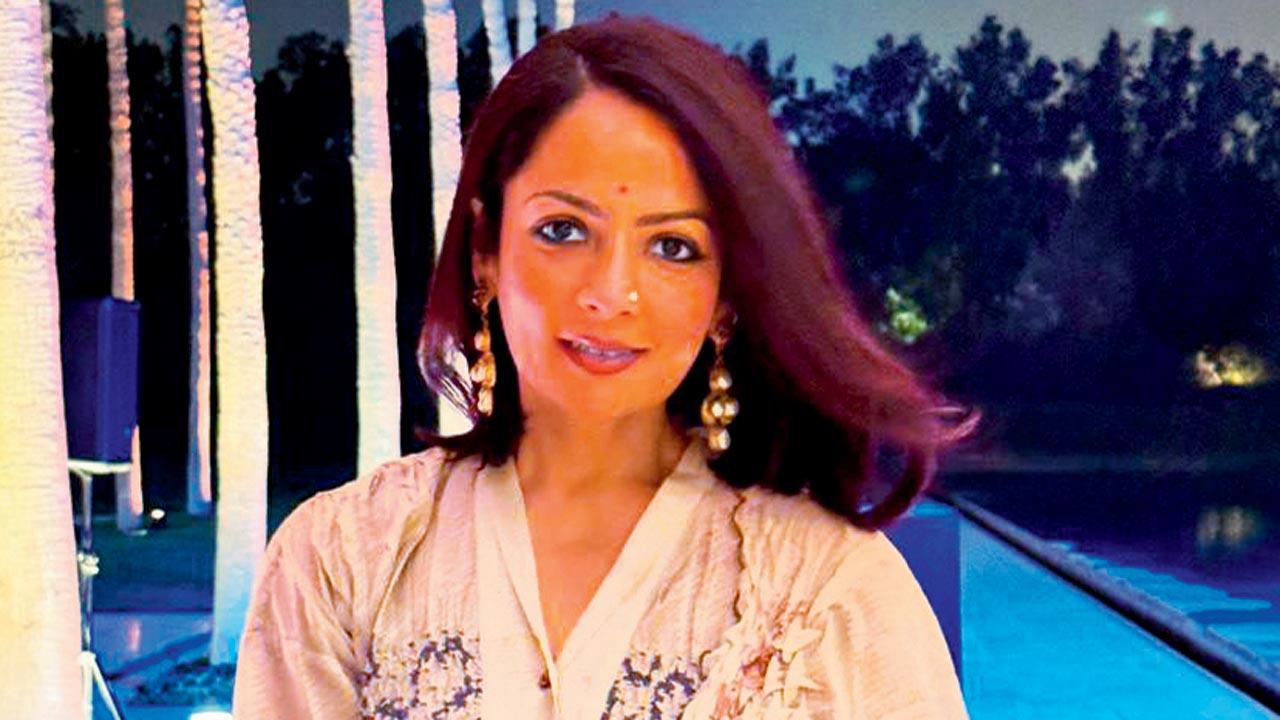As transgender characters gain prominence in mainstream Hindi cinema, we delve into how audition rooms and film sets are consciously opting for practices that transform them into safe and gender inclusive spaces

Bonita Rajpurohit recently played the lead in LSD2
I assumed it would be a minuscule role,” Bonita Rajpurohit says, recalling her first reaction when she was signed for Dibakar Banerjee’s latest film, Love Sex Aur Dhokha 2. She wasn’t prepared for what followed.
ADVERTISEMENT
Cast as one of the lead actors for Banerjee’s spiritual sequel to the 2010 found-footage drama of the same name, she “didn’t have any idea that I was playing one of the driving forces of the story.” Rajpurohit’s surprise is only natural, given that until LSD 2, Hindi films have never had a transgender actor in the lead role. “The struggle to land a good enough part is so intense that with time, you begin to lower your expectations,” she shrugs.
LSD 2 may be an anomaly, but one look at the recent history of Hindi cinema makes it clear that seeds of inclusivity are being slowly but steadily sown by courageous trans artistes, sensitive casting directors and progressive filmmakers.
 Anmol Ahuja; Sushant Divgikr and Karan Boolani
Anmol Ahuja; Sushant Divgikr and Karan Boolani
Just last year, actor Sushant Divgikr, who also goes by their drag name Rani Ko-HE-Nur, made their big screen debut in the Bhumi Pednekar-led coming-of-life comedy Thank You For Coming. A feat that took more than a decade to achieve. “I am the first transgender actor to be able to play a cis-het man, a drag queen and a pre-op trans person, all in the same film,” they say. Times have indeed changed. Who better than casting directors to attest to that. Granted the responsibility to find actors that fit the filmmaker’s vision, they are a crucial to affecting gender inclusivity.
“It’s become a need to cast appropriately today,” shares casting director Anmol Ahuja, who worked on LSD 2. “For a story to be truthfully depicted on screen, one needs to have the right actors conveying it. Hence, the need to cast right has come into the forefront.”
Casting director Shruti Mahajan, who has helped cast transgender characters for almost a decade, agrees that the demand from filmmakers to include them in a project is more pressing than ever before. “Things have changed drastically,” she says. “The first time I cast a transgender actor was during Akira, starring Sonakshi Sinha. This was way back in 2015. It was tougher. We didn’t have a pool of trans actors at that time. The director was very clear that he wanted to cast someone from the community for the transgender character. That’s when I realised the kind of struggles the trans community faces. For trans people to come out was a huge challenge. From there to Bombay Begums, there’s been a huge shift,” says Mahajan, who cast transgender actor Ivanka Das in Netflix’s 2021 show Bombay Begums, created by Alankrita Shrivastava. Later, she also cast Das in the 2023 sports drama Ghoomer, headlined by Saiyami Kher and Abhishek Bachchan.
 Shruti Mahajan, casting director
Shruti Mahajan, casting director
Rajpurohit recalls the times when the script only perpetrated stereotypes about transgender people. “I have been told I am not good enough for the role,” she says, “Sometimes not woman enough, sometimes not man enough, and at times not even trans enough!”
Mahajan echoes that there used to be a tendency to typecast. “Some of them choose to only focus on struggle and pain when it comes to casting for a trans character,” she says, “Their ideas of masculinity and femininity are also extreme.”
So what are casting directors like Mahajan and Ahuja doing differently to make the audition process safe and inclusive? First and foremost, incorporating an inclusive language, says Ahuja, co-founder of casting agency Casting Bay. “While working on LSD 2, my team and I ensured we used the right pronouns. The idea is to make sure they are comfortable while we look for the right talent. We also make sure to stretch our [preconceived] notions as far away as possible from stereotypes because, at the end of it, we are casting a character, not an actor. And if someone fits the character, they fit.”
Access to opportunities is equally important, Mahajan says. “There’s a reason we don’t go through co-ordinators,” she says. “Our social media has all the updates so that actors of every community have direct access to the team. I also conduct workshops with trans actors. In fact, workshops and acting classes have become far more gender inclusive now.”
Creating a level field for marginalised artistes also includes establishing a space that enables them to grab the opportunities in front of them. “While auditioning for Bombay Begums,” Mahajan says, we noticed that transgender actors, who had been exposed to camera more often and already found societal acceptance, were able to deliver better than the ones who were still struggling for acceptance. So, as a team, we made a conscious decision to not have many actors on a particular day of auditions unlike regular casting calls, so that we could spend more time with them, give them a safe space and confidence, and make them feel that they are a part of the industry. We tried to assure them that nobody was judging them. Sensitivity is very important because when you provide a comforting environment, their performance is far better because they don’t feel judged.”
The Me Too movement in 2017 cataylzed Mahajan’s decision to revamp the audition process. Ever since, she has set down certain guidelines for her team to follow while auditioning transgender actors. “Post the Me Too movement, we realised that this (safety of actors) needed to be addressed in the most serious manner,” she says.
“Also, I don’t have a big team. When you work with a smaller team with like-minded people, it’s easy to have a sensitive system in place.” One of the practices is to pair auditioning transgender actors with actors who have worked with trans artists before to perform the scene. “That establishes comfort and a safety net,” she says.
No amount of workshops, however, can prepare an actor for what unfolds on a set, which is a chaotic, unstructured and uncontained work space of more than 200 people. And this is amplified for transgender actors, who are prone to heavy scrutiny owing to their gender identity. The person they look towards for direction and safety is the captain of the ship, who sets the tone on the set. For Karan Boolani, the decision to cast a transgender actor in his directorial debut Thank You For Coming was deemed a risk, but he decided to listen to the story requirement, not the outside noise. “We made a mainstream film about a girl in search of her first orgasm, and cast a transgender character in one of the lead roles,” he says, “I don’t think it gets any riskier than that. But we believed in the larger idea of the story and that our decisions were serving the story. So that kept us confident going forward,” he says. The reason to cast Divgikr was simple. “Authenticity,” he says.
The road to inclusive representation, however, is not one without difficult conversations. Casting directors say they have to be mindful while rejecting transgender actors during auditions, lest they are misjudged. “Because they have gone through so much in life,” says Mahajan, “even when you try and make things normal for them, sometimes their levels of sensitivity are so high that they have trouble accepting what we are telling them. Any form of rejection in their mind is taken as, ‘Because I am trans’. That’s a huge challenge that I face as casting director. I don’t know how to find the correct words. There are times when I have been misunderstood.” But she is also against tokenism. “If I present an actor who is not good at their job, the audience will anyway not accept it,” she says, “It will backfire. It’s a journey for both me and them (transgender artistes). But that doesn’t dilute my endeavour, which is to cast more transgender actors, also in cis-het roles. Slowly, we will reach there.”
 Subscribe today by clicking the link and stay updated with the latest news!" Click here!
Subscribe today by clicking the link and stay updated with the latest news!" Click here!












